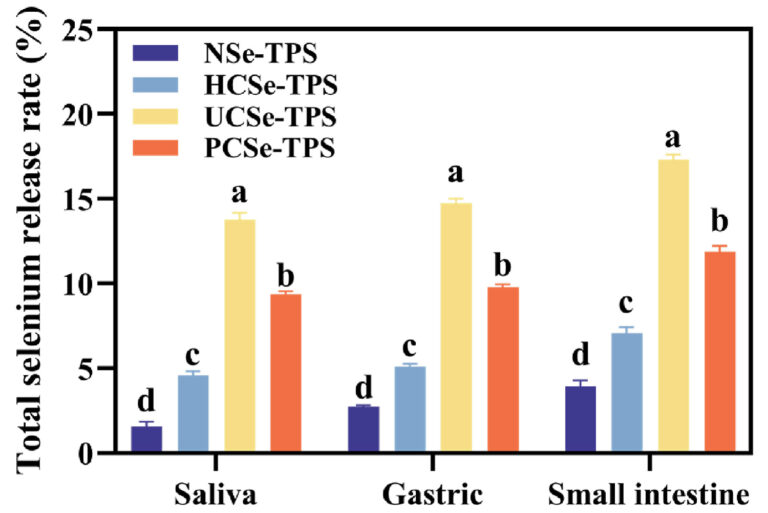Tea Polysaccharides with Selenium: A New Way to Support Gut Health
by Anna Sandhu | Aug 28, 2025
Reviewed by Dr. Arun, M.Pharm., PGDRA, Ph.D.

Imagine drinking tea that has been specially treated so its fiber part is enriched with selenium, a mineral your body needs. A recent study looked into this: they took the polysaccharides (fibrous parts) from tea, used a method called “selenization” (adding selenium in a controlled way) and then tested what happens to digestion, fermentation, and gut bacteria.
Here’s what they did: First, the scientists modified the tea polysaccharides using a physical and chemical method to add selenium. Then they tested how these selenium-tea fibers behave during digestion and fermentation (when gut bacteria break them down). They also looked at how gut microbe communities change: how many different kinds (diversity), how many total (abundance), and what types (composition) of bacteria show up.
What they found:
- The selenized tea polysaccharides were broken down differently by the gut microbiome compared to non-modified ones. That means the gut bacteria had new “food” and responded in new ways.
- Changes appeared in the gut bacterial community: certain beneficial bacteria increased in numbers or showed up more often. Also, some shifts in metabolites (the chemical by-products of digestion and fermentation) were seen. These metabolites are important because they feed our gut cells, help with gut barrier integrity, and influence overall health.
- The study also showed that the way the tea polysaccharide was processed (the selenization plus physical assistance) matters: it changed how the fiber was available to gut microbes and how the fermentation process ran.
In plain terms: This experiment suggests that what we eat, not just the amount of fiber, but the type and treatment of that fiber, can change our gut bacteria in meaningful ways. In this case, selenium-enhanced tea fiber provided different “food” to gut microbes, which led to different patterns of bacterial growth and metabolite production.
Of course, the study is early-stage. It did not yet show direct effects on human health outcomes like disease prevention or weight loss. It was more about gut microbial shifts and digestion/fermentation behavior. Still, it opens a promising path: instead of just adding more fiber, we might one day add smart fibers (like selenized tea polysaccharides) that support gut health in a tailored way.
In short: The research shows that specially treated tea fibers enriched with selenium can change the gut microbial world and how it works. If you are interested in gut health, it hints at a future where fiber quality and processing matter just as much as fiber quantity.
More Information: Digestion and fermentation characteristics of physically assisted chemical selenization of tea polysaccharides and their effects on gut Microbiota: Intestinal flora abundance, diversity, composition, and metabolite production. DOI: https://doi.org/10.1016/j.lwt.2025.118365
